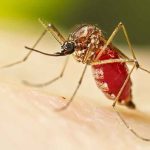N. Munal Meitei, Environmentalist
nmunall@yahoo.in

As COVID-19 has swept, the world has seen first-hand how a disease outbreak without the tools to halt and treat it can disrupt health systems, economies and threaten the populations. This has led many countries to wake up to the importance of pandemic preparedness.
Currently, India is emerging with many active caseloads of the new COVID variant JN.1. JN.1 was first detected in Luxembourg in August and is currently in 41 countries. The overall COVID-19 cases in India during the last two years stands at 4.50 crore with a death toll of 5.33 lakh. The total vaccine administered was 220.67 crore and the national recovery rate was 98.81%.
Now, if this new variant again start to shape, that will be a deadly throe. We cannot forget the trauma it inflicted – from deepening economic inequality, sparking historic unemployment, spawning mental health to exacerbating chronic health conditions for billions. If we do not learn from the mistakes we made during the COVID-19 response, we could be doomed to repeat them.
If human, animal and environment are united, we can prevent the next pandemic. Investing in conservation, improving agricultural practices and strengthening healthcare systems can help to prevent future pandemics. Protecting forests and ecosystems are essential and effective action. Prioritizing the development and production of vaccines against high-risk pathogens is another option. Additionally, ensuring equitable access to vaccines globally is crucial to control the spread of the next pandemic.
Experts agree that a lot can be done to prevent future pandemics, mitigate their severity and avoid repeating mistakes. The COVID-19 pandemic proved, once and for all, that no one is safe until everyone is safe. A health crisis somewhere can very quickly become a health crisis everywhere. The pandemic also showed us the weaknesses in the international system that coordinates the world’s response to pandemic threats. Now, more must be done to reduce the likelihood and impact of future pandemics.
WHO with 194 member countries resolved for a Pandemic Accord in December 2021 to develop an international cooperation to prevent pandemics in the future to secure the health and well-being of people everywhere. Taking the example of Montreal Protocol on ozone layer depletion succeeding in eliminating 99% of ozone-depleting substances, hope for positive outcomes from the accord this time also.
The main drivers — deforestation, the wildlife trade and burgeoning agriculture, especially in the tropics — could prevent future pandemics, save lives and catastrophic societal disruptions. Major health initiatives consistently overlook humanity’s key role in aiding pathogens in their quest for new hosts — specifically by razing forests; by enormously expanding agribusiness and by a massive, poorly regulated global trade in wildlife.
Our alterations to the ecosystem and the environment are what’s causing these outbreaks. The rising trend in zoonotic diseases like Ebola, MERS, Swine flu, West Nile and Rift Valley fevers – caused by viruses that have jumped from animal hosts into the human population by the degradation of our natural environment – through land degradation, wildlife exploitation, resource extraction, climate change and other stresses.
The identified trends driving the increasing emergence of zoonotic diseases include increased demand for animal protein, a rise in intense and unsustainable farming, the increased use and exploitation of wildlife and the climate crisis. The science is clear that if we keep exploiting wildlife and destroying our ecosystems, then we can expect to see a steady stream of these diseases jumping from animals to humans in the years ahead.
Incentivizing sustainable land management practices and developing alternatives for food security and livelihoods that do not rely on the destruction of habitats and biodiversity, improving bio-security and identifying key drivers of emerging diseases in animals and supporting the sustainable management of landscapes that enhance sustainable co-existence of mankind and wildlife will be safeguarding us.
A study published in Science, “Ecology and Economics for Pandemic Prevention,” authored by Dr. Aaron Bernstein found that the costs of preventing future zoonotic outbreaks like COVID-19 —by preventing deforestation and regulating the wildlife trade—are as little as $22 billion a year, 2% of the economic and mortality costs of responding to the COVID-19 pandemic, which some economists predict could reach $20 trillion.
There is a big connection between deforestation, wildlife trade and the rise of infectious diseases. Locations near the edges of tropical forests where more than 25% of the original forest has been lost tend to be hotbeds for animal-to-human virus transmissions. Wildlife markets and the legal and illegal trade of wildlife for pets, meat or medicine increase transmission.
Thus we need to strengthen and enforce to save the existing forests and increase funding for programs that monitor wildlife trade. Ban national and international trade of high-risk species like primates, bats, pangolins, civets and rodents. Increase education, awareness on animal handling, sanitation, disease transmission and sustainable wildlife management and support for Indigenous people who rely on wildlife for food. It’s time to think – prevention is better than cure.













